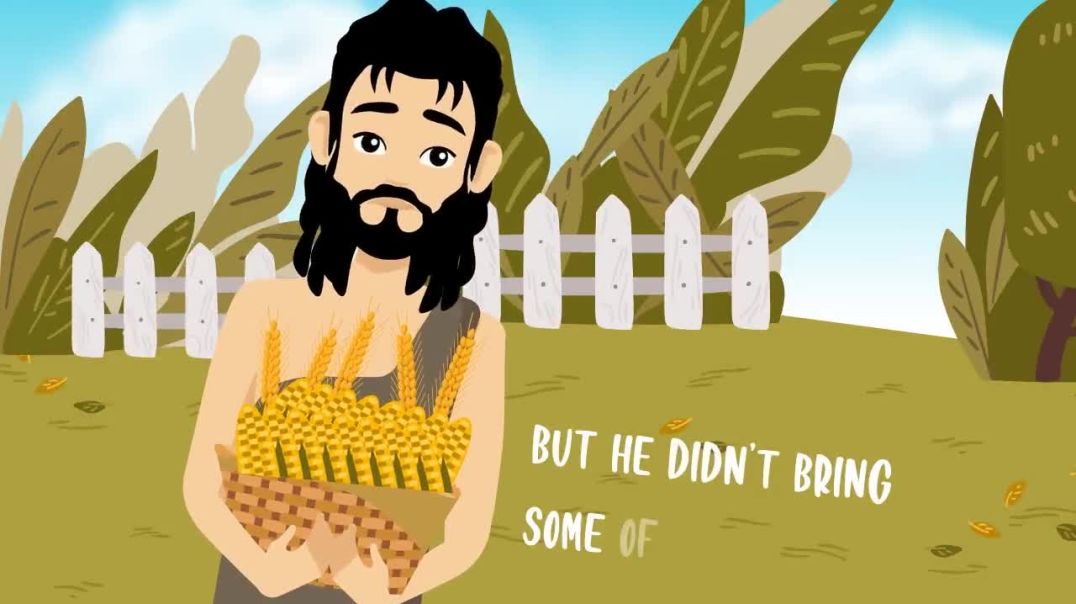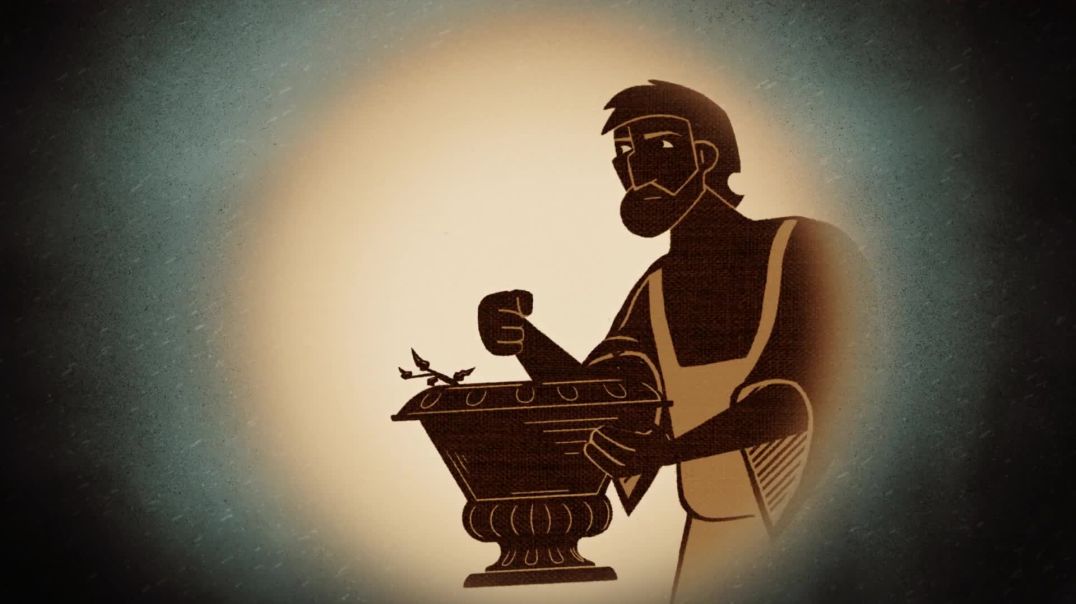The Most Important Question: How to Become a Christian
In a world filled with countless questions about purpose, morality, and eternity, one question stands above all others: "How can I be right with God?" For two millennia, the answer to this question has been found in the person of Jesus Christ. To be a "Christian" is not merely to adopt a new moral code, join a social club, or inherit a family tradition. The word itself, first used in Antioch (Acts 11:26), means a "follower of Christ" or "little Christ." At its core, becoming a Christian is a profound, supernatural transaction between a holy God and a lost humanity. It is an event of spiritual rebirth.
Jesus Himself described it this way to a religious leader named Nicodemus, who sought Him out by night. "Truly, truly, I say to you," Jesus declared, "unless one is born again, he cannot see the kingdom of God" (John 3:3). This "new birth" is not something we can achieve on our own. It is a work of God, and it answers the single greatest problem facing every human being.
This article will explore, from the foundation of the Bible, the path to becoming a Christian. It is a journey that begins with a sober understanding of our condition, moves to the glorious good news of God's solution, requires a specific personal response, and results in a new, eternal life.
The Starting Point: Understanding Our Need
Before one can appreciate "good news," one must first understand the bad news. The biblical worldview does not begin with the idea that people are "basically good" and just need a little help. Instead, it begins with the character of God and our relationship to Him.
The Holiness of God and the Problem of Sin
The Bible declares that God is perfectly holy. He is not like us. He is morally pure, righteous in all His ways, and just in all His judgments. The prophet Habakkuk says of God, "Your eyes are too pure to look on evil; you cannot tolerate wrongdoing" (Habakkuk 1:13). He is the standard of all that is good, true, and right.
Humanity, in contrast, has a problem: sin. When God created the first humans, Adam and Eve, He made them in His own image (Genesis 1:27) to live in perfect fellowship with Him. However, they chose to rebel against their Creator, distrusting His word and disobeying His command (Genesis 3). This act of disobedience, which the Bible calls sin, was not a small mistake; it was an act of cosmic treason.
This sinful nature has been passed down to every human being. We are not sinners because we sin; we sin because we are sinners. The Apostle Paul, in his letter to the Romans, quotes the Old Testament, writing, "As it is written: 'None is righteous, no, not one; no one understands; no one seeks for God. All have turned aside; together they have become worthless; no one does good, not even one'" (Romans 3:10-12).
Sin is not just the "big" things we might think of, like murder or theft. Sin is any failure to conform to the moral law of God, whether in act, attitude, or nature. It is pride, jealousy, lust, and greed. It is apathy toward God and a refusal to give Him the honor He deserves. In short, "all have sinned and fall short of the glory of God" (Romans 3:23).
The Consequence of Sin
Because God is perfectly just, He cannot simply overlook sin. His holiness demands that sin be punished. The Bible is unequivocal on this point: "For the wages of sin is death" (Romans 6:23a). This death is not just physical; it is spiritual. It is an eternal separation from God—the source of all life, goodness, and joy—in a place the Bible calls hell.
This is our universal dilemma. We are guilty before a holy God, and we are under a just sentence of death. Furthermore, we are completely incapable of saving ourselves. No amount of "good works" can erase the stain of our sin. Our best attempts at righteousness are, in God's sight, like "filthy rags" (Isaiah 64:6). We cannot earn our way to heaven, build a bridge to God, or tip the scales of justice in our favor. We are, as the Bible describes, "dead in... trespasses and sins" (Ephesians 2:1).
We need a rescuer. We need someone to do for us what we could never do for ourselves.
The Heart of the Gospel: God's Gracious Solution
This is where the "bad news" of our sin collides with the "good news"—the Gospel—of God's love. The most famous verse in the Bible summarizes this profound truth: "For God so loved the world, that he gave his only Son, that whoever believes in him should not perish but have eternal life" (John 3:16).
Out of His great love, God the Father enacted a plan of rescue. He did not abandon humanity to its sin. He sent His own eternal Son, Jesus Christ, into the world.
Who is Jesus Christ?
The Bible teaches that Jesus is not just a good teacher, a prophet, or a moral example. He is God in the flesh. The Gospel of John begins, "In the beginning was the Word, and the Word was with God, and the Word was God... And the Word became flesh and dwelt among us" (John 1:1, 14). Jesus is fully God and fully man.
This is essential. As a man, He could represent humanity and die in our place. As God, His life was of infinite value, and His death could pay the infinite debt of our sin.
What Did Jesus Do?
The work of Christ on our behalf is twofold: His life and His death.
-
His Perfect Life: Jesus lived the life we were supposed to live. He perfectly obeyed God's law in every thought, word, and deed. He "was in all points tempted as we are, yet without sin" (Hebrews 4:15). He fulfilled the righteous requirement of the law on our behalf.
-
His Sacrificial Death: This is the core of the Gospel. On the cross, Jesus did not die as a martyr or a mere victim. He died as a substitute. God the Father "made him to be sin who knew no sin, so that in him we might become the righteousness of God" (2 Corinthians 5:21).
On that cross, a divine transaction took place, often called "The Great Exchange." Jesus took upon Himself the sin of all who would ever believe in Him. He absorbed the full, unmitigated wrath of God that we deserved. He drank the cup of divine justice down to its dregs, crying out, "My God, my God, why have you forsaken me?" (Matthew 27:46). He died the death we should have died. This act, which satisfied God's holy justice, is called propitiation (1 John 2:2).
-
His Victorious Resurrection: The story does not end at the cross. Three days later, Jesus rose bodily from the grave. His resurrection is the non-negotiable proof that His sacrifice was accepted by the Father. It is the ultimate victory over sin and death (1 Corinthians 15:3-4). The resurrection is God's "Amen!" to Christ's "It is finished!" (John 19:30). Because He lives, we too can live.
This is the good news. God has provided the only way of salvation. Jesus Himself declared, "I am the way, and the truth, and the life. No one comes to the Father except through me" (John 14:6).
The Human Response: How to Receive This Gift
God has done everything necessary for our salvation. The gift is finished, paid for, and offered freely. So, how do we receive it? If our good works cannot save us, what must we do?
The Bible makes it clear that we are "saved by grace... through faith" (Ephesians 2:8). Grace is God's unmerited, unearned favor. Faith is the instrument by which we receive that grace. This saving faith is not a vague hope or simple intellectual agreement. Biblical faith consists of two inseparable parts: repentance and faith.
1. Repentance (Turning from Sin)
Jesus began His public ministry with this command: "Repent, for the kingdom of heaven is at hand" (Matthew 4:17). The Greek word for repentance, metanoia, literally means "a change of mind." It is a profound shift in how we see God, ourselves, and our sin.
Repentance is not just feeling sorry for getting caught. The Bible speaks of a "godly sorrow" that "produces a repentance that leads to salvation without regret," which is different from "worldly sorrow" that "produces death" (2 Corinthians 7:10).
True, biblical repentance involves:
-
An Intellectual Change: We agree with God that our sin is an offense against Him and that it is truly evil. We stop making excuses and justifying our behavior.
-
An Emotional Change: We feel genuine sorrow, shame, and grief for our sin. We hate what we once loved.
-
A Volitional Change: This is the most critical part. We make a conscious decision to turn away from our sin and turn toward God. It is a 180-degree change of direction.
You cannot turn to Christ without simultaneously turning from your sin. This doesn't mean you become perfect overnight. But it does mean you stop defending your sin and instead declare war on it, changing your allegiance from self to God.
2. Faith (Turning to Christ)
Repentance is the "turning from"; faith is the "turning to." Saving faith is more than just believing that God exists. As the book of James notes, "even the demons believe—and shudder!" (James 2:19).
True, saving faith involves:
-
Knowledge (Notitia): You must understand the basic facts of the Gospel: who Jesus is (God in flesh) and what He did (died for your sins and rose again).
-
Assent (Assensus): You must personally accept these facts as true. You agree that what the Bible says about Jesus is historical, factual reality.
-
Trust (Fiducia): This is the heart of saving faith. It is moving from "I believe this is true" to "I am trusting in this truth for my eternal destiny."
The best analogy is that of a chair. You can know the chair exists. You can assent to the fact that it is well-made and capable of holding your weight. But you have not exercised faith in the chair until you transfer your full weight onto it.
To become a Christian is to stop trusting in your own goodness, your own religion, or your own efforts. It is to consciously transfer your entire trust—past, present, and future—onto the finished work of Jesus Christ alone for your salvation. It is to rest fully in His perfect life, His substitutionary death, and His victorious resurrection.
The promise is simple and secure: "Believe in the Lord Jesus, and you will be saved" (Acts 16:31).
The Immediate Results: The Miracle of New Birth
The moment a person exercises genuine repentance and faith in Christ, God performs several supernatural, instantaneous miracles. This is what it means to be "born again."
-
Regeneration: You are made spiritually alive. God takes your heart of stone and gives you a heart of flesh (Ezekiel 36:26). He imparts new spiritual life to you. As 2 Corinthians 5:17 says, "Therefore, if anyone is in Christ, he is a new creation. The old has passed away; behold, the new has come."
-
Justification: This is a legal term. God, as the righteous Judge, declares you "not guilty." But He does more than that. He credits the perfect righteousness of Jesus Christ to your account. You are forgiven of all your sins (past, present, and future) and are seen by God as being as righteous as Jesus Himself (Romans 4:5, 5:1). This is not based on your performance, but on Christ's.
-
Adoption: You are no longer an enemy of God or an orphan. You are adopted into God's family as a beloved son or daughter (John 1:12; Galatians 4:5-7). You can now cry out to God as "Abba, Father."
-
Indwelling of the Holy Spirit: God the Holy Spirit comes to live inside you (Romans 8:9). He is your Comforter, your Guide, and your guarantee (or "seal") that you belong to God forever (Ephesians 1:13-14).
These things are not a process; they are an event. They happen the instant you are saved. You do not feel all of them, but they are true because God's Word says they are true.
A Final Invitation and The Next Steps
The journey to Christ ends in a moment of faith, but the journey with Christ lasts a lifetime. If you have understood your sin, your inability to save yourself, and the sufficient work of Jesus Christ, the Bible's call to you is simple and urgent.
"Everyone who calls on the name of la Lord will be saved" (Romans 10:13).
You can call on Him right now, in the quiet of your own heart. This isn't a magic formula, but a sincere prayer expressing your repentance and faith. It might sound something like this:
"God, I know that I am a sinner. I confess that I have lived in rebellion against you and deserve your judgment. I believe that Jesus Christ is your Son, that He died on the cross in my place to pay the penalty for my sins, and that He rose from the dead. I now turn from my sins and put my full trust in Jesus Christ alone as my Lord and Savior. Please forgive me, change me, and give me eternal life. Thank you for this free gift."
If you have made this decision, you have just begun the greatest adventure of your life. The Bible gives clear instructions for what to do next to grow in your new faith:
-
Publicly Profess Your Faith Through Baptism: Baptism (by immersion in water) is the first step of obedience for a new Christian. It is an outward symbol of the inward reality of your salvation—dying to your old life and being raised to a new life in Christ (Matthew 28:19; Acts 2:38).
-
Join a Bible-Believing Church: You were not saved to be alone. You are now part of a global family. Find a local church where the Bible is faithfully preached, where Christ is exalted, and where you can be encouraged by and accountable to other believers (Hebrews 10:24-25).
-
Read Your Bible: This is how you learn about God and His will for your life. It is your spiritual food (1 Peter 2:2). Start with the Gospel of John.
-
Pray: Prayer is simply talking to your new Father. Confess your sins, thank Him for His gifts, and ask for His help and wisdom (1 Thessalonians 5:17).
Becoming a Christian is the end of your old, self-directed life and the beginning of a new, joyful, and eternal life in fellowship with the God who made you, loves you, and died to save you.








